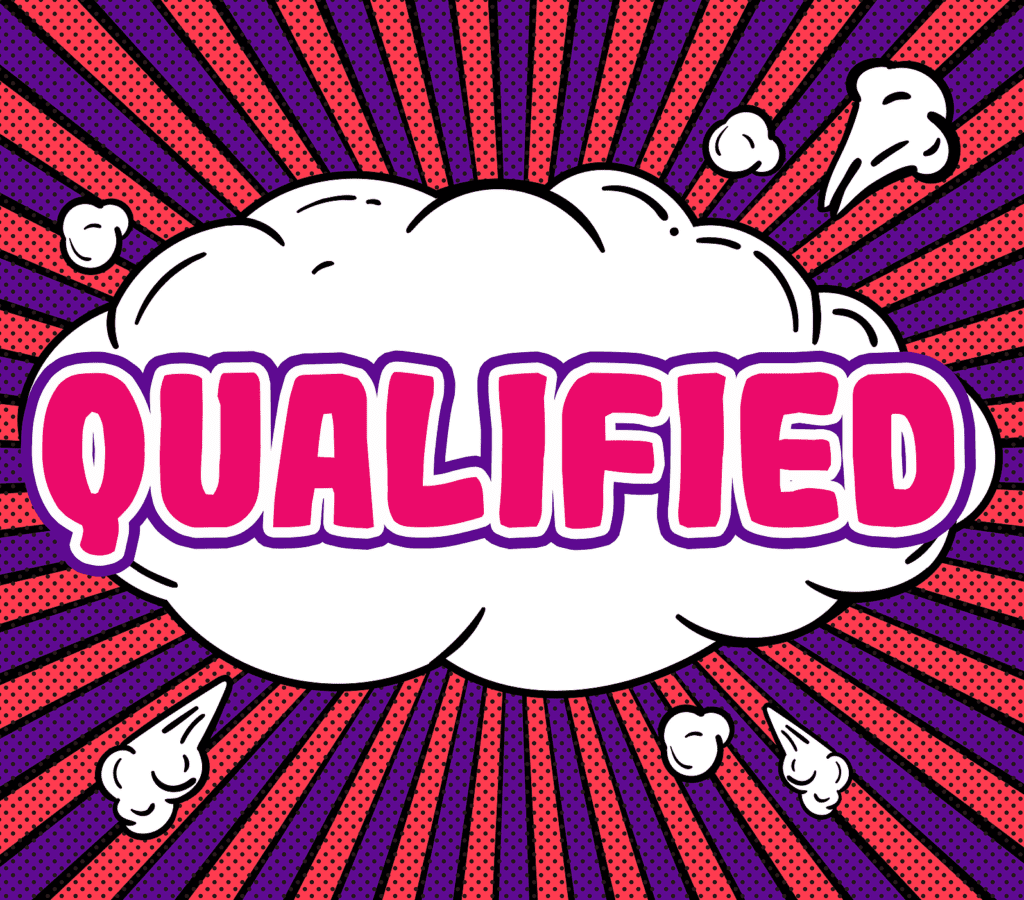What is TEFL Certification?
Let’s deal with the ‘TEFL’ part first. TEFL is an acronym for ‘Teaching English as a Foreign Language’. You may have heard about or know someone who is a TEFL Teacher. Teaching English as a Foreign Language is what TEFL Teachers do for a job. ‘Certification’ in the context of the term ‘TEFL Certification’ is essentially an ‘official’ document. When the acronym TEFL is coupled with the word certification, we’re referring to an official document that confirms a person has met the knowledge and skill requirements for employment as a TEFL Teacher. TEFL certification serves the same purpose as certification in other professions. It’s about knowledge and skills being independently validated, upholding standards, and more.

Who should obtain TEFL Certification?
Anyone who aspires to work as a professional TEFL Teacher in their home country or abroad should obtain TEFL Certification. Obtaining the certification involves completing an in-class or online study programme that typically comes with a time commitment of no less than 120 hours over four weeks. There’s a lot of theory and skills-related work to get through in a short space of time. For example, how do people learn new things? Almost certainly, you’ve never had a reason to reflect on this question. Fair enough, but if you plan to teach people new things, it makes sense to turn your mind to how people learn things.
Pathways for TEFL Certification
People new to ‘teaching English abroad’ can be excused for thinking all TEFL programmes are the same. I often hear newcomers, like Barry from Perth last week, say things like:
“120 hours with course provider ‘X’ (who charges a token sum) can’t be much different than 120 hours with course provider ‘Y’ (who charges a sum that’s consistent with what you’d expect to pay for vocational ‘qualification’) – I’ll get the same certification at the end of either programme”.
While Barry’s take on TEFL Certification programmes is understandable, it couldn’t be further from the truth. TEFL programmes worldwide fit into one of two categories; there’s no middle ground: 1. government-regulated and 2. non-government regulated. So, let’s examine these two categories.
Government-regulated TEFL programmes: TEFL Certification, that’s a product of nationally-recognised training (government-regulated) in the country of origin, is a legitimate vocational qualification under the relevant country’s ‘Qualifications Framework’. For instance, the AQF is the national qualifications framework in Australia. In South Africa, the SAQA is the national qualifications framework. If your TEFL certificate is a product of a government-regulated programme, not only is it recognised in the country of origin, but you have every reason to believe it will be recognised in other countries. Sure, you might have to jump through a few hoops, but it’s manageable, and you’ll have legitimacy on your side. Qualified lawyers, doctors, architects, musicians, accountants, bankers, engineers and the like who choose to work abroad have been navigating the qualifications-related bureaucratic processes for eternity. It’s not a new thing.

If you’re considering doing a quality TEFL programme in Vietnam, Cambodia or online that’s government-regulated, check out what AVSE-TESOL offers. They’re the Industry leaders in Southeast Asia. Here’s the AVSE-TESOL website address: www.avse.edu.vn
Non-government regulated TEFL certification: Certification that’s not a product of nationally recognised training (government-regulated) in the country of origin, at best, carries personal development (PD) value. It follows that when a ‘qualification’ is not recognised in the country it comes from, it can’t (or shouldn’t) be recognised in other countries. TEFL Certification that originates from the United Kingdom (UK), for example, that isn’t a product of nationally recognised training in the UK, can’t somehow morph from being a PD certificate to a legitimate ESL teaching qualification enroute from London to Ho Chi Minh City. You might be surprised, perhaps even saddened, to learn that this ‘morphing thing’ happens daily. If I was a fee-paying student and became aware that my TEFL Teacher was unqualified to do the job, I’d be more than peeved – and if my old mum was around, she’d be insisting on washing my mouth out with soap! How the ‘morphing’ happens will be the subject of a future article.

Study modes for TEFL Certification
Like every other area of study, there are TEFL programmes available via in-class and online study modes. These days, employers (schools) aren’t particularly bothered if your TEFL Certification comes from an in-class or an online course. However, employers attuned to what is a legitimate TEFL Teaching qualification and what’s not, government-regulated versus non-government regulated, will be bothered if you present a dud certificate.
There are pros and cons to both the in-class and online study modes. In-class pros include – all over in a matter of weeks, often in an actual school environment and immediate access to support. The cons include – higher costs, a set schedule, and being stuck in a classroom for hours on end. Online pros include – studying at a time that’s good for you, at a location of choice, and at a lower cost. Online cons include – isolation, taking much longer to complete and being less ‘hands-on’. Personal preference will dictate which study mode is best for you.

Career options with TEFL Certification
Career wise, where can a legitimate TEFL Certificate take you? As the age-old expression goes, ‘how long is a piece of string’. The career options available to people with government-regulated TEFL Certification are limited only by their imagination.
Throughout my journey in the TEFL Industry, I’ve had the pleasure of knowing TEFL-certified people who have: volunteered abroad as TEFL Teachers, worked as professional TEFL Teachers abroad in English Language Centres, Government Schools, Private Schools and universities, taught English online, used their knowledge and skills to create and sell ESL resources, opened their own English language school abroad, worked as an industry consultant, advised governments on ESL policy, made a decent living developing policies for the ESL industry, specialised in exam preparation classes – TOEIC, IELTS, TOEFL, found a niche teaching English to company employees, set themselves up as a recruiter – and a lot more. To draw on another age-old expression, with quality TEFL Certification, ‘the world is your oyster’.
Conclusion
I covered a lot of ground in this relatively short document. I defined the term ‘TEFL Certification’ and then discussed who should obtain this certification, pathways to certification, study modes and career options. Almost certainly, the existence of two pathways to TEFL Certification, ‘legit’ versus ‘non-legit’, will be news to many people.
This article was largely directed at piquing interest in a subject that barely rates a mention – anywhere. If there was more discussion about TEFL Certification, presumably, there would be fewer opportunities for bogus TEFL certificates to morph into legitimate ESL Teaching qualifications, somewhere between ‘developed country X’ and a developing country.
It’s abundantly clear to me that there’s a lot more to TEFL Certification than a four-letter acronym and a single sheet of coloured paper with a nice emboss and flags from the four corners of the world. Do you agree or disagree?
About the writer: Peter Goudge is the Managing Director and founder of AVSE-TESOL in Vietnam and Cambodia. AVSE-TESOL delivers an Australian Government regulated TEFL programme in Hanoi, Ho Chi Minh City and Phnom Penh. Check out the AVSE-TESOL website: www.avse.edu.vn
5 Compelling Reasons to Complete a TEFL Certification Course Now
Over the past five years, there has been an explosion in the number of people who have signed up to complete a TEFL Certification course, in-class or online. Why? Someone ‘let the cat out of the bag’. It wasn’t me. I wanted to keep it all ‘hush hush’. TEFL Certification is the key to a quintessential teach and travel abroad lifestyle. Do you want to live in the Maldives for a few months? No problem. You can meet the costs of a Maldives adventure by teaching English in-class at a local school – or online. Have you always wanted to check out the Pyramids in Egypt? Do it! You can take on some teaching work in Egypt to fund the trip.
This isn’t fantasy, it’s a reality for many people. It was my lifestyle for a long time until family responsibilities – and age necessitated some fundamental changes. Assuming you’re still not convinced that TEFL Certification can deliver the kind of lifestyle that most people only ever dream about, here are five compelling reasons, in plain English, to complete a TEFL Certification course now.

- Earn money while travelling abroad
For many people, young and more mature alike, this fact alone is enough to convince them that doing a TEFL course is a wise move. Rather than spend their savings while travelling abroad, folks who hold quality, government-regulated TEFL Certification can make money teaching English in-class and online from wherever they are in the world. This week it’s Venice. Next week it’s Munich. A month from now, it will be Ho Chi Minh City in Vietnam, my personal favourite TEFL destination of all time. Speak to the good people at AVSE-TESOL in Ho Chi Minh City, and they’ll get you sorted with government-regulated TEFL Certification and a terrific ESL teaching job in record time.
If you turn your mind to other vocational training programmes available in-class and online – barista, coding, business management and the like – nothing even comes close to the ease and convenience of teaching English abroad to fund your travels.
- Pathway to other exciting opportunities
As long as you get your TEFL Certification from a government-regulated programme (such as AVSE-TESOL in Vietnam or Cambodia), you’ll emerge from your time teaching and travelling abroad with knowledge, skills, hands-on teaching experience and perhaps even credit towards further studies. You will have laid a solid foundation to take your teaching to a higher level. On returning to your home country after teaching and travelling abroad, you may decide to specialise in kindergarten teaching, primary teaching, secondary teaching or special education. You might choose to become a TEFL Trainer – teaching newcomers how to teach and travel abroad as you did. When you return home, you might stick with teaching English as a foreign language. After all, those online ESL jobs that funded your teach and travel abroad adventure because you hold quality TEFL Certification, will presumably still be available. The reality is people who have successfully navigated a teach and travel abroad adventure have so many transferrable skills that they’re spoilt for choice when it comes to deciding ‘what’s next’.

- Respect
Teachers in developed countries like my native Australia, the United States, Canada, the United Kingdom and New Zealand often paint a gloomy picture of what happens in local schools. Abuse, unruly behaviour and violence are commonplace. The prevalence of gun violence in American schools is shocking and well-documented. Here is some good news. With TEFL Certification, you can teach English as a foreign language in Vietnam, Cambodia and a raft of other countries where teachers, especially ESL teachers, are revered for their knowledge and highly respected in local communities. In the Mekong Delta in the south of Vietnam, for example, from my firsthand experience, foreign teachers are almost ‘god-like’ to the extent that it’s embarrassing to those who are ‘worshipped’. I was embarrassed! It’s the polar opposite of what many foreign teachers have endured in their home country. It’s the polar opposite to what I had witnessed in my native Australia.
If you bump into a foreign ESL teacher in a country like Vietnam who has been teaching locally for an extended period, you might be inclined to ask them why they have stuck at it. I’m ‘betting’ the ‘high respect’ thing is close to the top of the list.

- TEFL Certification delivers freedom
Everyone loves a bit of freedom. However, if you’re leading a typical suburban lifestyle, including a ‘9 to 5’ job, there’s a good chance that your version of freedom comes around one or two days a week. Outside of your ‘freedom’ time, perhaps even during your ‘freedom’ time (lawns, washing the car and the like), life is pretty regimented – correct? For many folks, a regimented life meets their needs, and that’s fine, but it doesn’t have to be that way if you find it unappealing, possibly even soul-destroying.
TEFL Certification allows you to teach English as a foreign language and earn a decent income when, where, and how you like – you’ll have ‘freedom’ 24/7, or at least you’ll be in control of when you don’t. If you want to lay in a hammock all day on Phu Quoc Island, off the southern coast of Vietnam, taking online ESL classes, then do it. How about a short-term contract with the Cambodian Government teaching English to Tour Guides at the world-famous Angkor Wat historical site in Siem Reap, Cambodia? I saw this job advertised when I was last in the neighbourhood. With TEFL Certification, ESL gigs like those that I mentioned on Phu Quoc Island and in Siem Reap, will be available for you.

- Tangible difference
Before completing a TEFL Certification programme and subsequently trying my hand at teaching English in Vietnam, I’d worked for years in highfalutin jobs in Australia at the Local, State and Federal Government levels. Despite the tailored, pin-striped suits, black shoes that were so clean you could see your face in them and holding positions of influence, I never had the opportunity to ‘create’ something. It was more about image and process. In stark contrast, if you take ESL teaching seriously, creating opportunities for people – including the chance for a better life in many instances – will be the mainstay of your work.
Other than medicine and logistics related to the supply of food and water, I can’t think of a line of work where tangible, positive results for effort in a short period of time come anywhere near what teaching English as a foreign language in a developing country can deliver. In addition to making a real difference in the lives of local people, the tangible difference that such rewarding work will make in your own life shouldn’t be underestimated. Quality TEFL Certification is the key.
Conclusion
I have identified five compelling reasons why you should complete a TEFL Certification course now. You can make money while travelling overseas. ‘Doors will open’. Respect and freedom will come your way. You’ll have the opportunity to make a tangible, positive difference in the lives of others – and your own life. There are only five more words that remain to be written and here they are: what are you waiting for?
About the writer: Peter Goudge is the Managing Director and founder of AVSE-TESOL in Hanoi, Ho Chi Minh City and Phnom Penh. He’s passionate about high-quality, government-regulated ESL teacher training. Peter has written extensively about his personal experience as an ESL teacher, a teacher trainer and a school owner in Southeast Asia.
Is it best to complete a TEFL Certification course in-class or online?
With TEFL Certification courses being offered in-class and online by vocational training providers worldwide, I’ve decided to look at the benefits and drawbacks of both options. This might help you to decide which option, in-class or online, is best for you – and address some of the misinformation that pops up, especially on social media.

What is TEFL Certification?
TEFL Certification is akin to a licence to teach English as a foreign language. Assuming your certification comes from a government-regulated TEFL training programme, you’ll be qualified to work as an English language teacher in your home country and abroad. If you plan to use your TEFL certification abroad, you’ll have to jump through a few hoops to meet Work Permit (or similar) requirements in the host country, but this is simply a matter of following in the footsteps of those who came before you. If you’re unsure where to locate the ‘footsteps’, you can find Work Permit and visa processes for every country worldwide with a basic Google search.
Do schools prefer in-class or online TEFL Certification?
From my observations in Vietnam and Cambodia, especially in this ‘post-covid’ period, schools don’t care if the TEFL Certificate presented for a Work Permit (or similar) is a product of an in-class or an online TEFL programme. While it might have been frowned upon previously, completing a qualification online is commonplace and an accepted practice. I did notice two or three posts quite recently in ESL teaching-related Facebook Groups – the prime impetus for this article – that the bigger Language Centres in Vietnam, ILA, VUS, Apollo and the like, will only accept ‘in-class’ TEFL certification. I checked with the schools, and it’s untrue.
While schools aren’t concerned how you obtained TEFL Certification, in-class or online, they will closely examine whether the certificate is a product of a nationally recognised training (government-regulated) or a random personal development course. If it’s the latter, you shouldn’t be surprised if your applications for teaching jobs at reputable, well-known schools are continuously declined. Why? Your core ESL teaching ‘qualification’ doesn’t stack up. It’s not an ESL teaching qualification at all. The likelihood of being rejected for your dream ESL teaching job abroad can be substantially reduced by doing a government-regulated TEFL programme, in-class or online; it doesn’t matter. I advise doing the Australian Government-accredited TESOL/TEFL programme at AVSE-TESOL in Hanoi, Ho Chi Minh City, Phnom Penh or online. TESOL/TEFL Certification from AVSE-TESOL is government-regulated and the ‘Gold Standard’ in Southeast Asia. CELTA is also a decent option, but keep in mind that the ‘TA’ in the CELTA acronym stands for ‘Teaching Adults’, which might create issues given that 90%+ of the ESL teaching work in Vietnam, Cambodia and elsewhere involves young learners.

In-class ‘pros’
Pro one: Structured
Most in-class TEFL Certification courses run for 120+ hours over four weeks. They tend to be fast paced. This is ideal for quick learners who want to get the whole certification requirement over and done with at the earliest opportunity in a structured, immersion environment.
Pro two: People
In-class TEFL programmes typically involve a mix of people from around the world, classmates, your trainer, tutors, administrative folks and others. You’ll love the training environment if you’re a ‘people person’ by nature. Being surrounded by people with a common purpose allows for new friendships, real-time feedback and a helping hand when needed.
Pro three: Resources
‘In-class’ implies a designated, specialist learning environment where you’d expect to find all the resources an ESL teacher would use when taking ESL classes. Almost certainly, you’ll have immediate access to a whiteboard, overhead projector, a computer, textbooks, internet access, paper, markers and suchlike. As a result, you can focus on the training without worrying about distractions.

In-class ‘cons’
Government-regulated in-class TEFL programmes are not cheap. The high cost of in-class training is prohibitive for many aspiring ESL teachers. An intensive, four-week study programme isn’t an option for people with ongoing daytime (or evening) commitments, such as a regular 9 to 5 job or childcare responsibilities. In-class learning requires people to travel from their homes to where they will study. This is problematic for people who don’t own a car, don’t have ready access to public transport or have trouble getting around due to a disability.

Online ‘pros’
Pro one: Freedom
Online learning programmes, TEFL Certification or otherwise, allow you to choose when, where and how you will study. There might be the occasional webinar or similar that you must attend at a specific time, but in the main, you’ll manage the ‘when, where and how’.
Pro two: Choice
Seemingly daily, new online TEFL Certification programmes pop up on the internet. Putting quality to one side, for every in-class, TEFL Certification programme that’s available, there are at least ten online programmes to choose from.
Pro three: Hone IT skills
These days, students expect that ESL teachers will incorporate Information Technology (IT) into the teaching and learning experience. By doing an online TEFL programme, aspiring ESL teachers can hone their IT skills, while building teaching knowledge and skills.

Online ‘cons’
Doing an online study programme requires self-discipline. Some folks have oodles of self-discipline, while others, like me, have very little. There doesn’t seem to be a middle ground. Students who struggle with self-discipline will almost certainly struggle with an online course. By its very nature, teaching is a ‘people profession”. Inclusivity, and recognising individual differences, are pivotal. It could be argued that online learning is inconsistent with the ‘pillars’ of teaching. The number one drawback with online study programmes is susceptibility to disreputable practices. For example, can we be sure that Student A’s mum didn’t do the TEFL Certification course on his behalf? Moreover, why have we seen a proliferation of TEFL programmes that aren’t government-regulated? Answer – anyone with a keyboard and a monitor can upload an accredited course on the internet, mostly accredited by an entity they set up. Online learning still has a bit of the ‘wild west’ about it. It’s a haven for dodgy characters, and TEFL is not immune.
Conclusion
Should you complete a TEFL Certification programme in-class or online? Given that I largely control my schedule and have the flexibility that many others don’t, in-class would unquestionably be the best option for me. I’d go further and say that the in-class course at AVSE-TESOL in Ho Chi Minh City would be my choice because I know it’s government-regulated, and I know the trainer. What’s good for me, may not suit you or others. Personal circumstances will largely dictate which route you take.
Regardless of whether you choose in-class or online study to complete your TEFL Certification programme, most schools in Vietnam won’t discriminate. Government-regulated versus non-government-regulated is where there is no leeway. Do a government-regulated TEFL programme, and you’ll be fine.
About the author: Warren Duffield started working as an ESL teacher in Vietnam in 2016. CELTA-certified, Warren has completed teaching contracts in Hanoi, Ho Chi Minh City and Can Tho. While he’s currently taking a break from teaching to learn how to Scuba Drive, he plans to head back to the classroom in the second quarter of 2023.


Hi Peter,
My partner Aidan Somers has passed on your details to me.
We are both looking at teaching English in Vietnam next year and your course looks like a great fit. Could you please let me know what the next steps would be to enrol myself?
Thankyou!
Isabelle
Greetings Isabelle
Thank you for your question. Aidan is a good fella.
If you wish to enrol in our Australian Government accredited TESOL programme (online), it’s simply a matter of of completing and submitting the course-related enrolment form found via this link: https://www.avse.edu.vn/online-tesol-course/
When you complete the form, please remember to insert Aidan’s name in the section that asks how you heard about AVSE-TESOL. This will allow me to send a gift Aidan’s way.
Kind regards, Peter